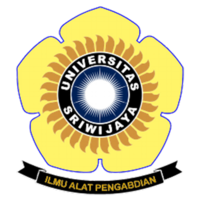Inovasi Digital di Industri Smart Farming: Konsep dan Implementasi
Abstract
Budiharto W. 2019. Digital innovation in the smart farming industry: concept and implementation. In: Herlinda S et al. (Eds.), Prosiding Seminar Nasional Lahan Suboptimal 2019, Palembang 4-5 September 2019. pp. 31-37. Palembang: Unsri Press.
Agriculture is one of the oldest industrial sectors ever created by humans. The FAO predicts that by 2050 the world population will be 9.6 billion. That means agricultural production must increase by 70% in that year in order to meet the needs of the population with this amount. Yet as we know that there is a classic problem of food namely the population increases but the amount of agricultural land is getting narrower. Therefore, increasing agricultural technology-based productivity is very urgent, one of which is based on the Internet of Things (IoT). IoT is the latest technology where devices around us can communicate with each other through the internet network. Wireless Sensor Network (WSN) technology was applied more broadly to IoT-based agriculture which came to be known as Smart Farming. The sensors used in agricultural land are used to determine the chemical condition of the soil, the quality of plant health and other useful information. Smart farming, which was originally called Precision Agriculture, is predicted to become a compulsory concept of agriculture in the future because of limited land. Smart farming utilizes technologies such as big data, machine learning, robotics and IoT to improve the quality and quantity of production in the agricultural industry. This paper gradually explains the concept of smart farming and its implementation in Indonesia.
Agriculture is one of the oldest industrial sectors ever created by humans. The FAO predicts that by 2050 the world population will be 9.6 billion. That means agricultural production must increase by 70% in that year in order to meet the needs of the population with this amount. Yet as we know that there is a classic problem of food namely the population increases but the amount of agricultural land is getting narrower. Therefore, increasing agricultural technology-based productivity is very urgent, one of which is based on the Internet of Things (IoT). IoT is the latest technology where devices around us can communicate with each other through the internet network. Wireless Sensor Network (WSN) technology was applied more broadly to IoT-based agriculture which came to be known as Smart Farming. The sensors used in agricultural land are used to determine the chemical condition of the soil, the quality of plant health and other useful information. Smart farming, which was originally called Precision Agriculture, is predicted to become a compulsory concept of agriculture in the future because of limited land. Smart farming utilizes technologies such as big data, machine learning, robotics and IoT to improve the quality and quantity of production in the agricultural industry. This paper gradually explains the concept of smart farming and its implementation in Indonesia.
Keywords: concept, implementation, smart farming
Full Text:
PDFArticle Metrics
Abstract view : 5152 timesPDF - 10943 times
Refbacks
- There are currently no refbacks.

